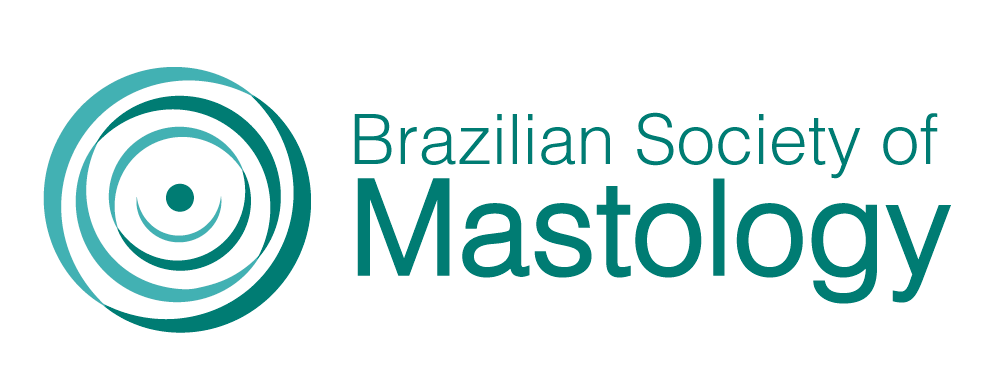NTRK MUTATION IN ADENOID CYSTIC CARCINOMA
A RARE TYPE OF TRIPLE NEGATIVE
Palavras-chave:
Cystic Adenoid, NTRK, Breast Cancer, Triple NegativeResumo
Introduction: Breast cancer is one of the neoplasms that most cause death in women. Among these, there are some subtypes of greater biological aggressiveness, such as triple negative and HER overexpressed, which are associated with greater recurrence and mortality. Adenoid cystic carcinoma (ACC), salivary gland type, represents less than 0.1% of primary breast carcinomas and has indolent biological behavior and favorable prognosis compared with nonspecial triplenegative types. Case Report: A 51-year-old woman diagnosed with locally advanced ACC in the right breast, with negative immunohistochemistry for hormone receptors and HER2, underwent quadrantectomy with upfront axillary dissection, followed by adjuvant radiotherapy. After 12 years of diagnosis, she presented significant back pain, with magnetic resonance imaging scan evidencing bone lesion without medullary involvement in D7 and L1 suggestive of the secondary implant. Anatomopathology revealed the same histology as the primary tumor. Re-evaluation of chest tomography showed progression of pulmonary disease, 5 months after diagnosis of the first metastasis, underwent segmentectomy, with descriptive pathology identical to the initial lesion. Due to the oligoprogression and tumor type, somatic genetic research of the lung material was requested, which revealed a mutation in the NTRK gene, patient is still waiting for Larotrectinib in court. Discussion: The tumor has an unusual histological type, rare occurrence, slow progression course, and the absence of lymph node metastasis; the average incidence is around age 60. In this case, a young patient presented an ACC tumor with lung and bone metastasis. Due to the rarity, there is no definitive consensus regarding the ideal treatment, with the literature referring to the choice of mastectomy. Conclusions: Although malignant breast neoplasms and nonspecial subtypes, such as ductal and triple negative, have a poor prognosis, breast carcinoma of this aforementioned type has a favorable prognosis. The search for driver mutations in cancers of special types, together with the advances in genetic medicine, allows satisfactory results with target-specific treatments.
Downloads
Downloads
Publicado
Como Citar
Edição
Seção
Licença
Copyright (c) 2021 Silvaleide Ataides Assunção, Vinicius Lemos Nascimento, Bruno Henrique de Aguiar Brito, Carolina Daher de Alencar Neves, Laura Queiroz da Silva, Pedro Vinicyus Novais e Souza, Fernando Santos de Azevedo, Lanúscia Morais de Santana

Este trabalho está licenciado sob uma licença Creative Commons Attribution 4.0 International License.







